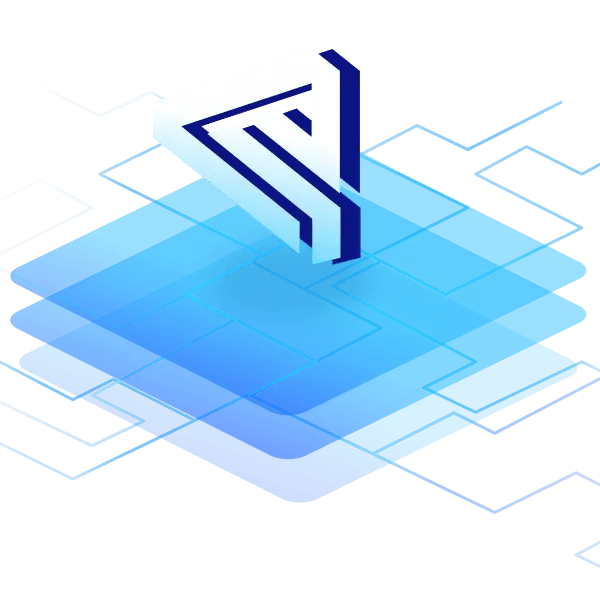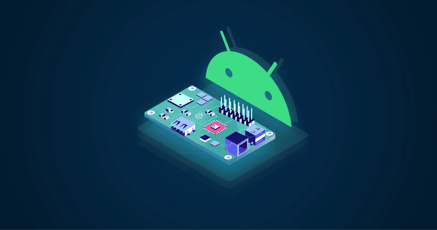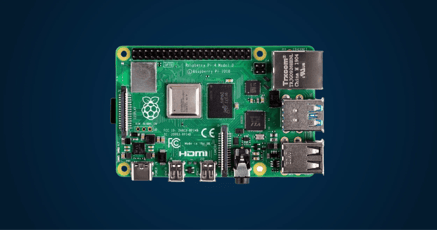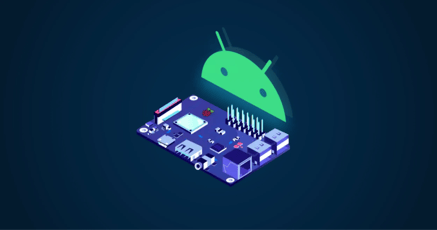Android Things, moving on
If you use Google’s Android Things then you must certainly have heard the news: Android Things is dead. Google first announced the beginning of the end for Android Things last December. In software parlance, Android Things is already as good as gone. While some commercial projects may continue to exist after January 2021, all support will end, and all project data will be deleted after January 2022. A replacement of Android Things was sought in vain by many users.
Few will actually notice the passing of Android Things. As an operating system it never really lived up to its original promise. But for those who actually used Android Things or who saw promise in Android Things perhaps the loss of this operating system came as bad news. If you find yourself in that group, prepare for some good news.
A replacement of Android Things is ready and waiting to fulfill the promises of Android Things. Not unsurprisingly, emteria.OS is the better alternative!
In memoriam: Android Things begins and ends
Android Things started when Google announced something known as Project Brillo in 2015.
Project Brillo was intended to be the embedded operating system for smart devices in the burgeoning IoT market. The operating system would be lightweight. There would be no need to support a display. The Project Brillo OS would run on low-power devices with as little as 35Mb of memory. It was seen as the OS that would power everything from thermostats to surveillance cameras to smart toaster ovens. Most importantly, Project Brillo was envisioned as a managed operating system, with tasks for multiple devices controlled from a central location or dashboard.
Unfortunately, even with the backing of Google, Project Brillo never realized its potential. The project was never able to release a product that might become a dominant force on the Internet of things. After only one year, Project Brillo was abandoned, and with slight modification, resurfaced as Android Things.
A new beginning
Android Things was first introduced as a subset of Android, streamlined for the Internet of Things. It is not quite accurate to call Android Things a subset of Android, but it was believed that the association with the Android brand and with Android’s development tools would be enough to attract the programmers and manufacturers needed to guarantee success for the new OS.
Not discouraged by the new branding’s initial failure to generate much excitement, Google pressed on, modifying the concept slightly until 2018 when it finally released Android Things 1.0. This new release of Android Things was ready for OEMs. To help emphasize its readiness, the Android Things 1.0 debut was accompanied with the release of a pair of smart speakers and three major-vendor smart displays.
Forgotten promises
Android Things had promised users the ability to manage devices from a common interface such as a smartphone. But somewhere along the path from the beginnings of the Brillo Project to the debut of Android Things 1.0, ambitions for the OS shifted from it becoming the operating system for the internet of things to an operating system for speakers and displays.
By early 2019 Google had begun treating Android Things like some forgotten bacteria in a Petri dish. Cancelling support commitments, Google began to actively pursue its next big plan for IoT domination.
For the true believers holding out hope for the lightweight operating system, Google posted a notice on the Android Things developer’s page in December 2020 (offline): “The Android Things console is no longer accepting new projects, and will be turned down for all existing projects on January 5, 2022.”
Replacement of Android Things
You and your development team aren’t crazy to feel abandoned or even bitter, now that Android Things has officially failed to deliver on its promises and is instead about to become a historical footnote. Nevertheless, the story is not all doom and gloom.
Google has provided developers a full year to transition to another operating system before pulling the plug on Android Things. As luck would have it, a premier candidate as a replacement of Android Things is featured in this very article. In many ways, it’s almost as though Google itself had left a signpost showing the path forward for Android Things users.
Glance through the documentation or read the technical reviews of what Android Things should have been and it soon becomes apparent that in many ways Android Things was intended to be a slightly lesser version of emteria.OS.
emteria.OS delivers on the promise of a managed operating system that Android Things failed to deliver. It provides the framework and operating system expertise that allows users to re-focus resources where needed.
There are plans to someday replace the underperforming Android Things with what that should have been. But, at least for now, those products are vaporware. emteria.OS is available today.
Perhaps most importantly, unlike other product ideas, emteria.OS is not just another trial balloon from some software giant fumbling to carve out a new niche for itself. emteria.OS is an operating system to address your specific needs today.
emteria.OS, the Android Things alternative
In some ways, Google’s Android Things was a successful failure. It successfully introduced the notion of adopting the Android operating system for IoT, even if it actually failed to do so. It also validated the managed operating system concept for IoT devices.
Android Things is, or soon will be, dead. Migration from Android Things isn’t a question of “if”; it’s a matter of “when”.
If you choose emteria.OS you will find that most of the difficult issues, such as compatibility of hardware devices, have already been solved. And most importantly, operating-system management issues – including having expert support on hand able to respond to unique requirements – have been addressed.


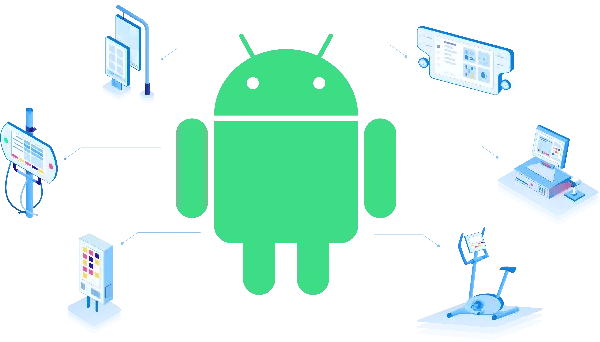
-1.png?width=800&height=487&name=Android%20Use%20Cases(2)-1.png)
